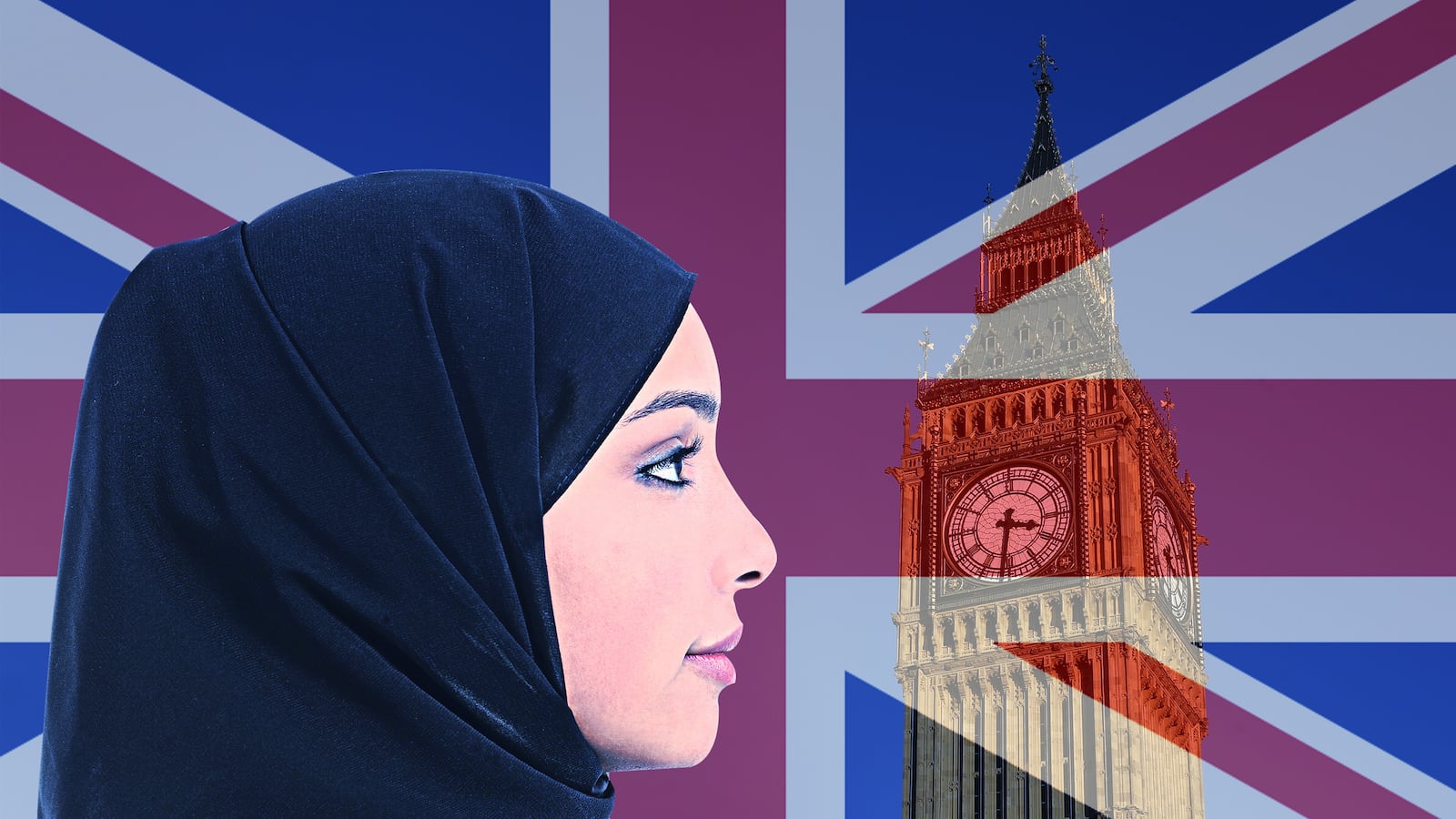LONDON — “Where in the world do you think the following things are happening?” British Prime Minister David Cameron asked. “School governors’ meetings where male governors sit in the meeting room and the women have to sit out of sight in the corridor. Young women only allowed to leave their house in the company of a male relative. Religious councils that openly discriminate against women and prevent them from leaving abusive marriages. The answer, I’m sorry to say, is Britain.”
And then he raised the question of language. “New figures show that some 190,000 British Muslim women—or 22 percent—speak little or no English despite many having lived here for decades,” Cameron said. “Forty thousand of these women speak no English at all. So it’s not a surprise that 60 percent of women of a Pakistani or Bangladeshi heritage are economically inactive.”
Assuming Cameron got his facts and figures right, all of this should disturb anyone who truly cares about the welfare of minority communities, and the under-empowered voices within them.
One might well question the motives of a Conservative Prime Minister pushing female empowerment, supporting a progressive agenda, condemning far-right anti-Muslim bigotry in the same speech; and even at one stage referencing the advancement of “liberal” values in his remarks. And, indeed, plenty have questioned his designs.
Cameron couched his remarks in terms of countering extremism. His idea is that if mothers are better integrated into British society, which presumes they speak English, then their angry young sons will be as well. But I cannot recall any first-generation British Muslim immigrant mother, struggling with English, who has gone on to become a jihadist.
Within the first generation of my own family there are close female relatives for whom learning English remains a challenge despite being here for decades. It is true that this is unrelated to extremism, for these same family members are—bless them—superbly supportive of my family’s ethnic and religious diversity.

But state support for English classes and skills development would help such women financially. Importantly, such a financial status and developing better language skills would aid women to connect authoritatively to their often-alienated second-generation offspring, who have proven more susceptible than the first generation to extremist recruitment.
It is this authoritative connection, which comes from having one’s own financial and educational standing in the community, that is most important, and relevant not only to Muslim immigrants in Europe, but to immigrants in the United States and many other countries as well.
If a parent is seen to be isolated from life generally, he or she will stand little chance of acting as a moral or intellectual role model for any children who may be vulnerable to extremism. In my own life and journey through extremism, the one voice that kept nagging at me throughout, and eventually helped pull me from the brink, was my own British-educated and fully integrated mother’s.
Of course, Muslim immigrants aren’t the only ones who struggle with integration and the English language. But it is futile to ignore that a high proportion of traditional immigrants to the U.K.—from Pakistan and Bangladesh—and recent migrants to Britain from war zones—Afghanistan, Somalia, Iraq, and Syria—all hail from countries that are disproportionately affected by Islamist extremism. And like in Cologne, it is dangerously unprogressive to pretend there is no cultural element to community enforced patriarchy.
Nor is it useful to deny that though the world has many problems—all of which need to be addressed, mind you—there is an acute global problem with Islamist extremism at present. Any policy that encourages further integration and skills development for minorities, something all progressives have traditionally argued for, can only help to treat the sort of disenfranchisement that leads to extremism. Once the rot of self-segregation settles in, it not only aids Islamist recruitment but it also helps the far-right radicalize mainstream society against minorities. For this reason, we must overcome the obfuscation, denial and politically correct paralysis that prevents us liberals from addressing these issues. It cannot be progressive to allow this to continue.



